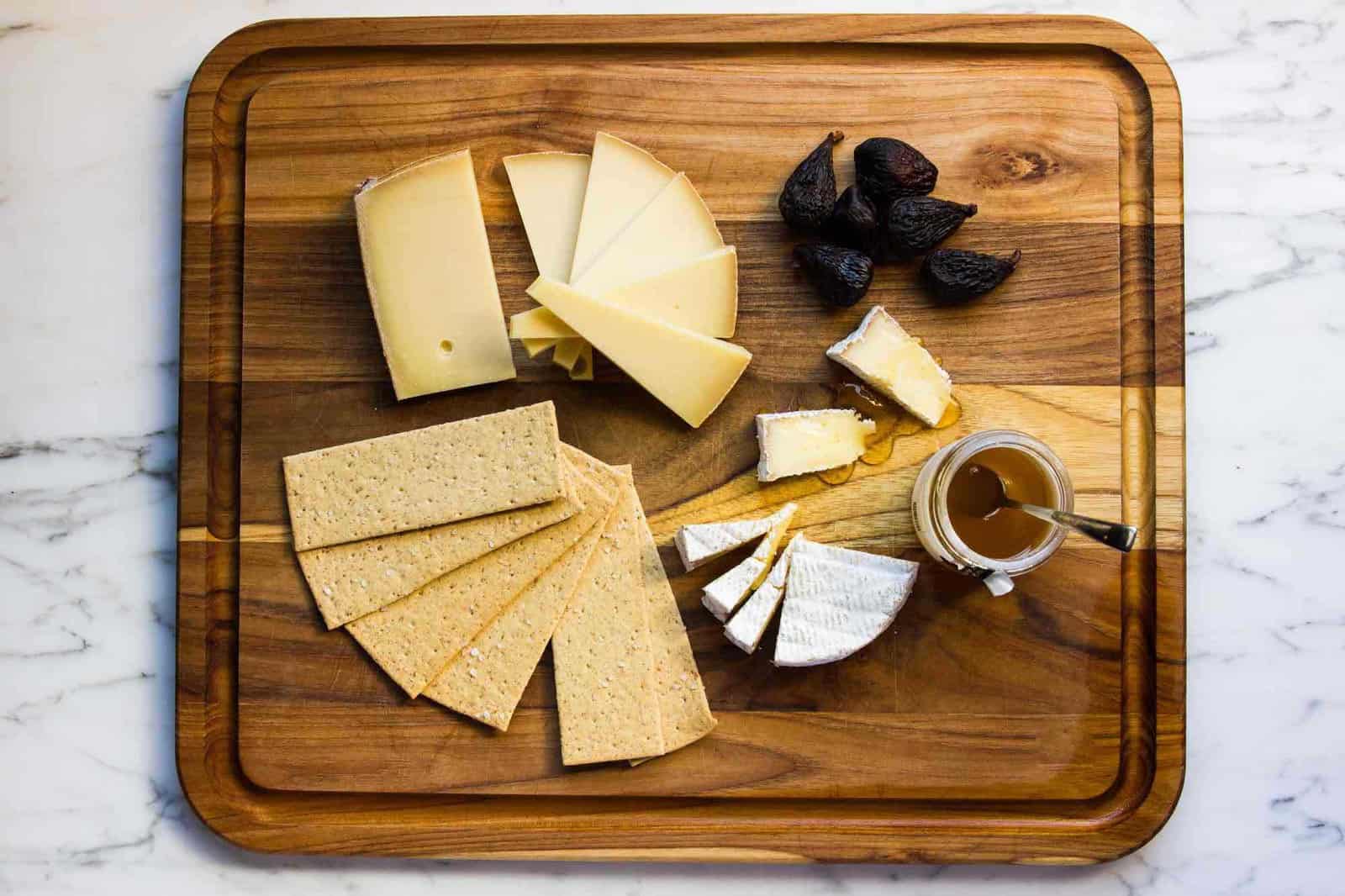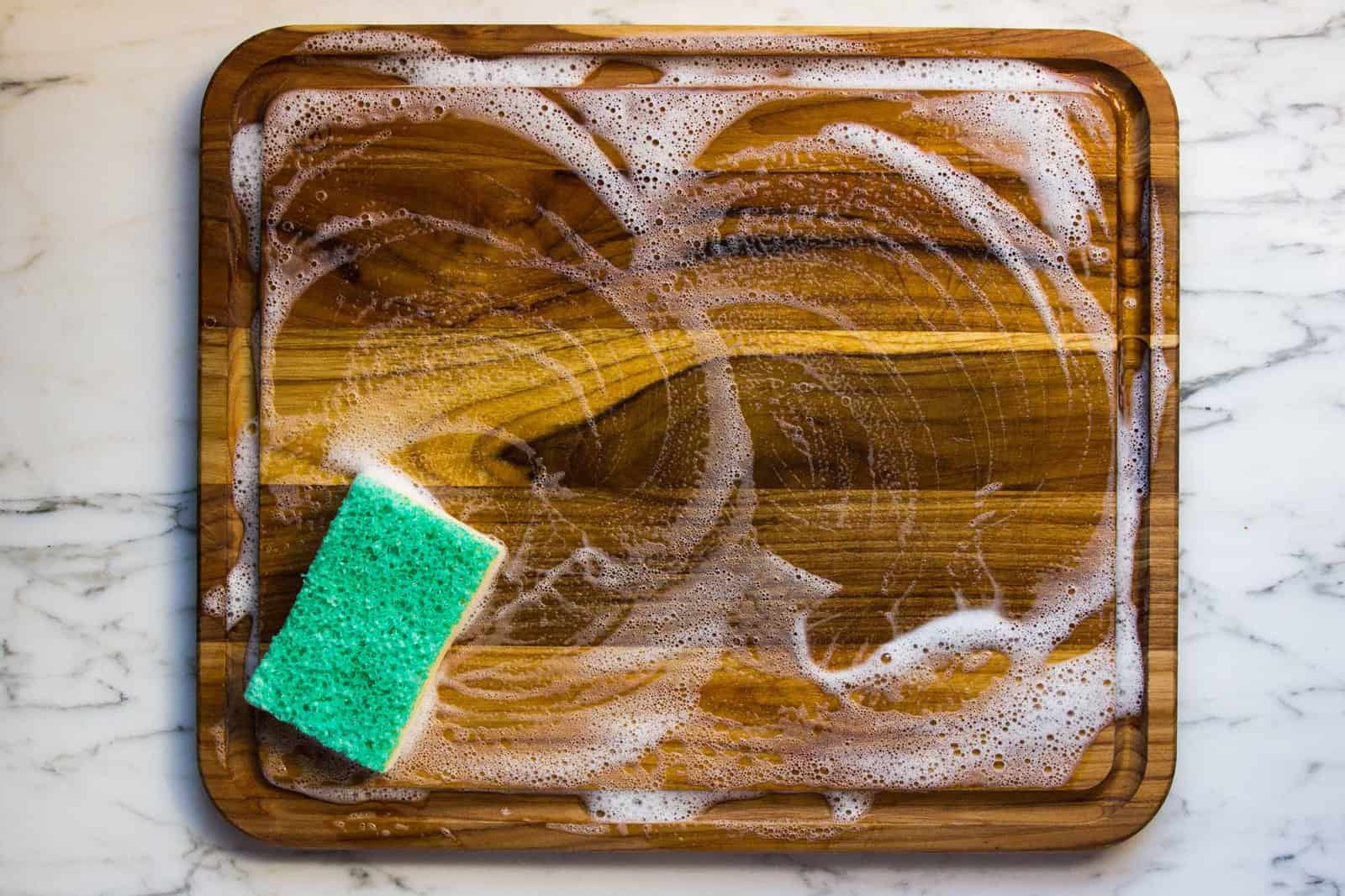
Cheese board collectors, we know your struggle: that moment when you look at your most useful wooden board and realize that it’s not so party-worthy anymore. Covered in cuts and rough in texture, the once beautiful surface suddenly feels like it might leave a splinter in your food or hide some nasty germs in its crevices.
At culture, our wooden platters get a lot of action, so we’ve learned a thing or two about the care and keeping of a beautiful board. Just in time for spring cleaning, follow our tips to clean and protect your cheese board. So when appetizer hour hits, all you’ll have to worry about is loading it up with goodies.
Clean
Use hot water and a small amount of mild dish soap, then wash in gentle circular motions with a soft sponge. For stubborn spots, skip the abrasive scouring pad (it’ll just chew up the surface more) and opt for long strokes with a stiff dish brush.
Disinfect
White vinegar is the perfect cheap disinfectant: Make a 2:1 mixture of water and vinegar and apply to both sides. (For something stronger, mix 2 tablespoons of bleach in 1 gallon of water.) Don’t submerge the board; just apply the mixture, let sit for a few minutes, and rinse with water.
Deodorize
Your cheese might smell musty, but your board shouldn’t. Make a thick paste with 1 cup of baking soda and 2 tablespoons of water and smear it all over. Let it sit, then pour white vinegar over the board to remove the mixture.
If you prefer lemons to vinegar, rub the board in coarse salt (we like Kosher) and use a halved lemon with the cut side down to scrub the board, squeezing slightly to release some juice. Let it sit to pull up the grime, then rinse.
Dry
If there’s one step you can’t skip, it’s this one. After washing and disinfecting, wipe the board with a dry cloth or paper towel. You want the wood to absorb as little water as possible to avoid cracking or warping.
Maintenance
Once your board is clean and dry, rub both sides with some food-grade mineral oil on a soft cloth or paper towel. Let it soak in for at least a few hours, but ideally overnight. Rub off any excess before using.
This doesn’t need to be done every time you wash the board but aim for once a month if it sees a lot of use. This will keep the surface smooth and shiny and prevent water from soaking in.
Extra Steps
If your rough board needs a little more love, use superfine sandpaper to smooth the surface. Use small circular motions all over to create a new finish—but don’t forget to clean and oil after.
Always Do It By Hand
Never put your cheese board in a dishwasher. The intense heat and strong detergent can cause the wood to warp and crack. For this reason, also avoiding soaking the board in water.
If you can, reserve your cheese board for cheese and snacks and save the raw meat for another cutting board. The porous wood can absorb blood, creating a breeding ground for germs and a bad smell. (If you’ve got to share the board, don’t skip the disinfectant steps above.)
Photo Credit Erika Kubick






